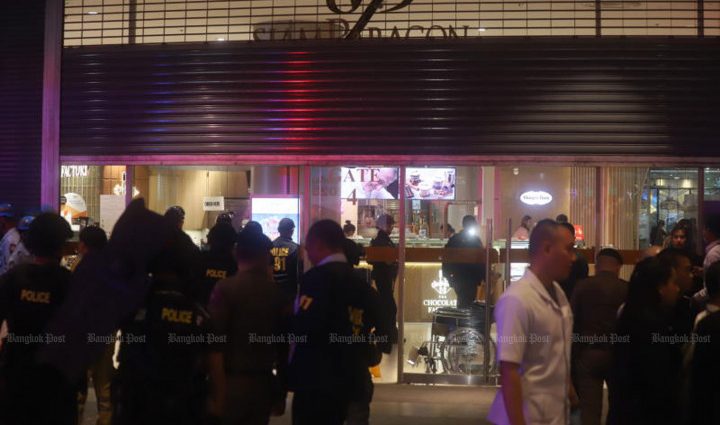PUBLISHED : 29 Dec 2023 at 05:22

Prosecutors have returned to police a summary of their investigation into the Siam Paragon shooting involving a 14-year-old suspect that occurred nearly three months ago in downtown Bangkok, noting it lacks a sufficiently clear mental health assessment of the teenager.
The summary contains details of the police investigation, including examinations of evidence.
The shooting rampage, which killed a Thai and two foreign nationals — one from China and the other from Myanmar — as well as wounding four others, including a Chinese tourist and a Lao worker, was allegedly carried out by the 14-year-old inside the popular shopping complex on Oct 3.
After reviewing the summary, prosecutors found the police had concluded their report prematurely before receiving the boy’s mental health assessment.
Naken Thongpraiwan, deputy spokesman of the Office of the Attorney-General (OAG), said yesterday that Pathumwan police submitted the summary on Dec 20. It outlines the charges, including premeditated murder, possession of a firearm, and bringing and using a firearm and ammunition to a public place without permission.
According to the OAG’s Youth and Families Division 3, the police took the suspect to the Galya Rajanagarindra Institute to undergo psychiatric rehabilitation two days later, based on the belief he was suffering from a mental illness.
Yet they proceeded to press charges on Nov 3 despite the institute not having released its assessment, Mr Naken said. They also failed to discuss the shooter’s mental condition with doctors beforehand.
Released on Nov 21, the assessment suggested the suspect could not understand the charges, communicate ably, or control his emotions, Mr Naken said.
Prosecutors said this rendered the interrogation unlawful under Sections 14 and 134 of the Criminal Procedure Code and Section 6 of the Juvenile and Family Court and Procedure Act.

